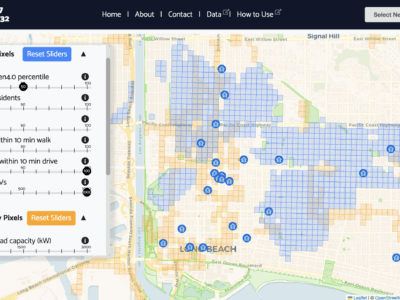A Subtle New Paper; “How Not to Save the Planet” by Thom Brooks
Thom Brooks has written a thoughtful new paper. Here is his abstract:
Abstract. Climate change presents us with a pressing challenge. A global consensus accepts that
human activity is responsible for climate change and its associated dangers. However, there is
disagreement on how best to address this challenge. The essay argues that leading proposals are
unsatisfactory, such as the ecological footprint and polluter pays principle. The reasons include
that they do not effectively manage climate change and may contribute to further problems. We
require a new approach to address climate change.
He reproduces a couple of quotes from my Climatopolis and I would like to add a couple of thoughts.
My book focuses on the micro economics of climate change adaptation and the role that urban growth will play to help us to adapt. I do not view adaptation to be a substitute for mitigation. In the book, I talk about my support for $10 a gallon gas. I would love to see a carbon tax of $50 per ton of CO2 right now but I am a realist. Such policies will not be enacted and the stock of GHG emissions will continue to rise. I hope that the Green Guinea Pig efforts such as California’s AB32 teach us new lessons that then broadly diffuse but we face the challenge of climate change.
I argue in my book that free market capitalism will greatly help all of us to adapt to many of the challenges of climate change. During this time when we focus on income inequality, some of us have forgotten the benefits of free markets. Capitalism is an amazingly adaptable system for organizing activity. Price signals (whether it is scarce water, or the desire for renewable power) will direct human ingenuity to get to work on the hard problems that climate change will cause. From a law of large numbers, we will find many solutions. Ideas are public goods . Once we have Facebook, we can all benefit from it. We only needed one guy to produce it. Our future entrepreneurs will focus on climate change challenges.
I am well aware that some geographical areas (especially in poor nations) will be hammered by climate change. Migration will be required and land owners and those who can’t move will suffer. For more on LDC migration and climate change read this. The imperative to support economic growth and poverty reduction in LDCs is enhanced by the climate change challenge.
Reader Comments
2 Replies to “A Subtle New Paper; “How Not to Save the Planet” by Thom Brooks”
Comments are closed.







I’m not really sure if this paper is truly “subtle”, in that is is just a rehash of the old “gosh, we shouldn’t really do anything cuz it’s expensive!!!! *heart*” argument. And the ‘do nothing’ approach, by the way, is…how does the author put it…oh yes: anthropocentric. Weak brew.
“The good earth: we could have saved it, but we were too d*mned cheap and lazy.”
I’m not really sure if this paper is truly “subtle”, in that is is just a rehash of the old “gosh, we shouldn’t really do anything cuz it’s expensive!!!! *heart*” argument. And the ‘do nothing’ approach, by the way, is…how does the author put it…oh yes: anthropocentric. Weak brew.
“The good earth: we could have saved it, but we were too d*mned cheap and lazy.”